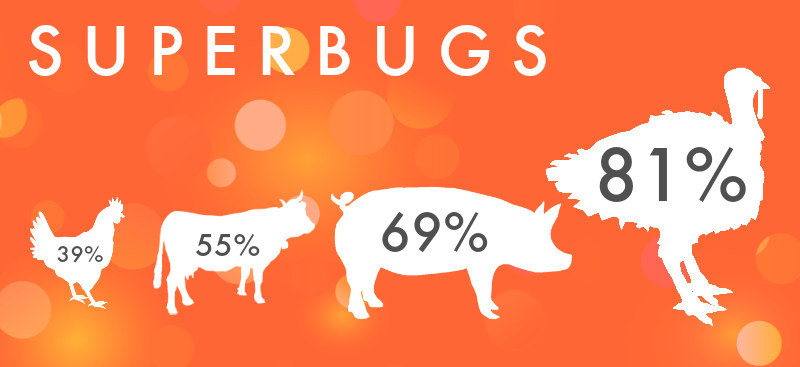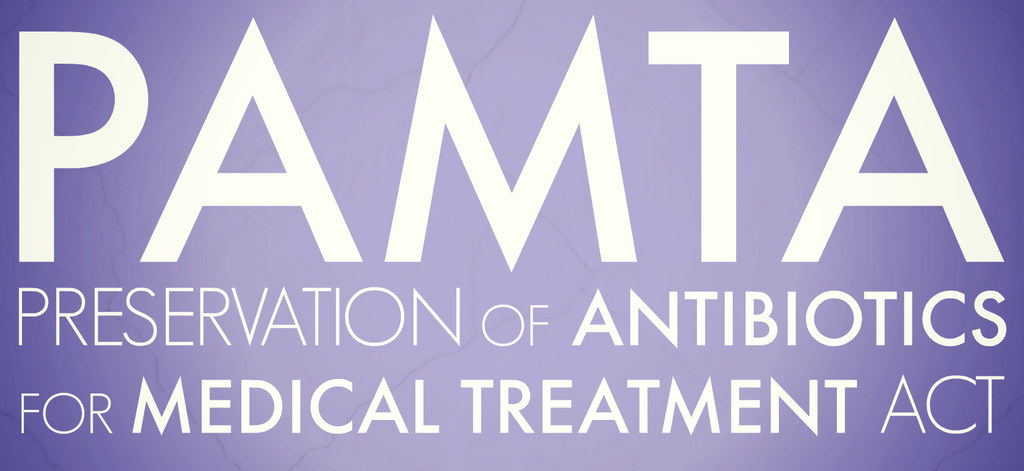1. Antibiotics: Not Your Average Drug

2. 80% of Antibiotic Use in the U.S. is in Agriculture

3. Prevention v. Treatment

4. Superbugs in Supermarkets

5. Hens --> Humans

6. Big Ag is a Big Pain

Last week, the President’s top science advisors conclusively linked the overuse of antibiotics in corporate agriculture with the dire public health disaster we know as antibiotic resistance. This week, Dr. Angela King, an industry-connected veterinarian, tried to sell BuzzFeed readers on the idea that current rates of antibiotic use on the farm are good, responsible, and that we shouldn’t “have a cow” about them. Here are some things that Dr. King and the big pharmaceutical companies that have billions of dollars at stake in perpetuating the rampant overuse of antibiotics won’t tell you.

Antibiotics don't work like any other kind of drug. If you overuse Tylenol, it doesn't change how Tylenol works for me. If you overuse antibiotics, it changes their effectiveness in not just me, but everyone. The bacteria that didn't die from the first round of antibiotics are now stronger. Now, they're superbugs—antibiotic resistant bacteria that could be fatal. What if we don't have a new antibiotic to kill them with? News flash: we don't.

Antibiotics are a precious resource that we can't afford to waste and squander. While overuse in humans is part of this problem, when 80% are being used on the farm, we've got to focus on agriculture use, too.

Antibiotics are primarily intended for treatment, not prevention. Daily preventive use on the farm is the equivalent of sprinkling antibiotics on your kids' Cheerios every morning just in case they encountered a germ. Treating diseases in animals is absolutely an appropriate, prudent use of antibiotics. But, that's not how they're most often being used. Antibiotics are being used for growth promotion (getting animals fatter, faster) and to make up for terrible conditions, like overcrowded barns, tiny pens that animals can't move in, feces-covered floors, and more. My friend Russ Kremer and many farmers like him are speaking up about this.

Research tells us that antibiotic resistant bacteria, or "superbugs," created by these low-level doses of antibiotics move not only to the farm workers and the surrounding community but also to the grocery stores. The Environmental Working Group found that 81% of ground turkey, 69% of pork chops, 55% of ground beef, and 39% of chicken breasts, wings, and thighs had antibiotic resistant bacteria in them. While the meat industry will put the burden on the consumer (you) to "handle meat safely" and cook it to the right temperature, wouldn't it be better to just…not have so much bacteria in our meat!?

When humans eat the superbug-laced meat, they are endangering their health. The Centers for Disease Control reports that that at least 2 million Americans fall ill from antibiotic-resistant bacteria each year and that at least 23,000 die from those infections. If we don't responsibly use antibiotics, modern medicine as we know it is over. Dental procedures, joint replacements, open heart surgery, and Cesarean sections, to name a few operations, would be impossible without the ability to control infection. Strep throat or a skinned knee could be fatal.

Some say that the big meat producers will police themselves, that voluntary policies will go far enough, and that they don't need mandatory rules. Well, our nation's health is at stake. Our food supply is at stake. Modern medicine is at stake. I have a bill, PAMTA, which would help to curb this trend by protecting eight classes of antibiotics for human use, while still allowing sick animals to be treated. Big bucks and long hours have been spent lobbying against my bill by people who think like Dr. King.
It's my responsibility to tell you the truth.
Overusing antibiotics in farm animals breeds antibiotic resistant bacteria that spread among animals and workers and into water, soil, and the air. It delivers superbug-contaminated meat to stores. And it decreases antibiotic effectiveness and heightens risks that people will develop hard-to-treat infections that could kill. It's not just me: The World Health Organization agrees. In a recent report, they've concluded that antibiotic resistance is, “a problem so serious that it threatens the achievements of modern medicine.”
Any questions?
